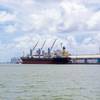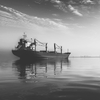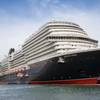Unilateral regulations imposed on shipping following the Prestige disaster are restricting the industry's freedom to trade cost-effectively, and if copied by other port states around the world, could threaten its economic viability, Dr Hans Payer, executive board member of Germanischer Lloyd and a former chairman of IACS said at the London International Maritime Convention today
"Never in the history of the maritime industry have so many port states become involved in a casualty and imposed so many unilateral rules - without consultation with the industry and without the cause of the accident being properly investigated," he said. "Ships trade worldwide and need a common set of rules. Great difficulty for international shipping will result if these precedents are followed by other port states worldwide. The potential for confliction and confusion seems enormous."
Dr Payer said there appeared to be nothing to stop any port state hijacking the handling of a casualty and ignoring internationally agreed IMO Conventions, as well as brushing aside the customary role of masters, owners and flag states and time-honoured maritime practices and traditions.
He called for a sweeping overhaul of the way in which casualties are handled and investigated, and new legislation imposed. He suggested that the IMO, as the shipping industry's own United Nations body, should have overall responsibility for the whole process, and that it should initiate an urgent debate to find the most rational way forward. "There is a pressing need for a framework to provide a centralised procedure of overall control and co-ordination for the handling of casualties, and for the consideration of new legislation desired by port states, which must involve consultation with the shipping industry."
"Unless we do this, our industry will continue to be pilloried by politicians and saddled with costly and ill-thought-out legislation which will drive up the cost of transporting cargoes, with consumers paying more for almost everything they buy. Our ancient and cherished freedoms to trade upon the sea must be controlled, but not unduly restricted."
He said it was critical that the handling of high profile accidents such as the Erika and the Prestige was greatly improved. "In the case of the Prestige, all logic and historical precedent was contradicted through the imposition of legislation and rules before the underlying cause of the accident has been scientifically determined."
It was also vital that the remains of casualties lying in deep water were properly investigated to discover the causes. "There are too many wrecks lying on the bottom of the sea, hiding the secrets of their demise, such as the bulk carriers Derbyshire and Christopher." He said that the technology to investigate them was available, but the problem was that most port states could not afford the cost.
"The Prestige lies in some 3,800 metres of water, and the true cause of the accident has not been determined. The Titanic lies at roughly the same depth, yet in 1985, Dr Robert Ballard's expedition was able to recover a mass of evidence and material from the wreck."
He suggested that in accidents involving loss of life and extensive pollution the IMO should coordinate and perhaps control the involvement of all parties – flag and port states, owners, class and salvers. "The IMO should also have at its disposal an international Ready Response Task Force that clicks into action instantly with all the necessary experts and equipment being flown to the scene."
"If we are to satisfy modern public opinion, it is essential to handle shipping casualties much more effectively. We must elevate our investigative process closer to that of the aviation industry." He said that in the two most recent air disasters in the eastern Atlantic –Swissair Flight 111 in 1998, and Egypt Air Flight 990 in 1999, huge resources and technical expertise had been deployed to try to discover the causes. In an amazing operation, much of the remains of the Swissair aircraft had been re-assembled in a laboratory.
Subscribe for
Maritime Reporter E-News
Maritime Reporter E-News is the maritime industry's largest circulation and most authoritative ENews Service, delivered to your Email five times per week










